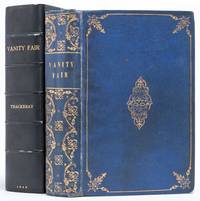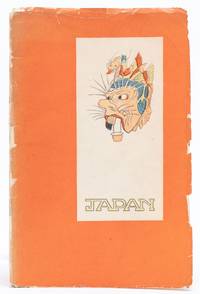first edition
1835 · London
by [Fine Binding - Riviere & Son] Lamb, Charles
London: Taylor and Hessey [and] Edward Moxon, 1835. First edition [and] second edition. Fine. Lamb's Essays of Elia and Last Essays of Elia, finely bound by Riviere & Son in full dark brown morocco with a dark green morocco pull-off case. Two volumes, octavo. [vi], 341; xiii, 295 pp., complete. Elaborate gilt spines in six compartments with raised bands. Gilt rule to boards and gilt turn-ins. All edges gilt. Teal coated endpapers. Small twentieth-century bookseller's ticket to lower flyleaves. A Fine, fresh set in a beautiful binding.
First edition, second issue of Essays of Elia (with both the Fleet Street and Waterloo addresses in the imprint), bound without the terminal publisher's ads. Second edition of Last Essays of Elia, which was first published by Edward Moxon in 1833.
Lamb's accessible and conversational essays were published under the pseudonym Elia, inspired by an Italian man that Lamb had known at the South Sea House, and had appeared serially in The London Magazine between 1820 and 1825. Despite his struggles with mental illness, Charles Lamb (1775 - 1834) would be celebrated for his literary contributions, producing a range of material from essays to poems. Lamb belonged to an active literary circle which included Percy Bysshe Shelley and Lord Byron. Fine. (Inventory #: 6796)
First edition, second issue of Essays of Elia (with both the Fleet Street and Waterloo addresses in the imprint), bound without the terminal publisher's ads. Second edition of Last Essays of Elia, which was first published by Edward Moxon in 1833.
Lamb's accessible and conversational essays were published under the pseudonym Elia, inspired by an Italian man that Lamb had known at the South Sea House, and had appeared serially in The London Magazine between 1820 and 1825. Despite his struggles with mental illness, Charles Lamb (1775 - 1834) would be celebrated for his literary contributions, producing a range of material from essays to poems. Lamb belonged to an active literary circle which included Percy Bysshe Shelley and Lord Byron. Fine. (Inventory #: 6796)













